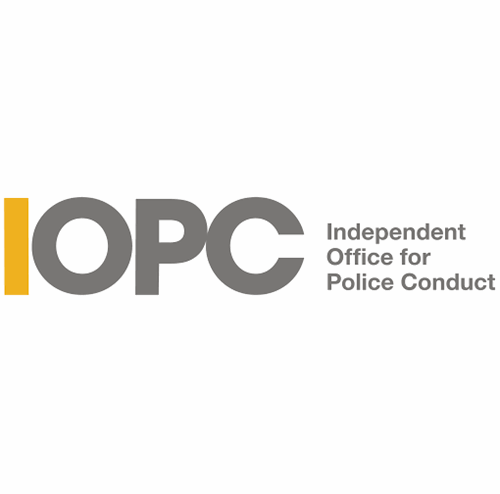“The IOPC must focus its efforts on concluding investigations as quickly as possible”, MPs have said in a new report
1 March 2022

“The IOPC must focus its efforts on concluding investigations as quickly as possible”, MPs have said in a new report.
The Home Affairs Select Committee published its ‘Police Conduct and Complaints’ report, focusing on the Independent Office for Police Conduct (IOPC) this week.
It said that the IOPC had made “significant advances” in speeding up the process for dealing with officer complaints and that most were now resolved within 12 months.
But the Government might intervene in the future to make sure this deadline is maintained.
The report said: “The Government should ensure that the drive towards timely investigations is continued and should consider whether stronger guidance on the expected length of inquiries may be required.”
There were also concerns about “the strength of [the IOPC’s] investigations, the qualifications of its investigators and the transparency of its operations”.
Mike Peake, Conduct Lead for Greater Manchester Police Federation, said: “GMP Federation absolutely acknowledge, due to the public office held, the importance of the scrutiny that is placed upon serving officers within Greater Manchester Police (GMP). Their behaviour and interactions with members of the public must be held to account, but what cannot be forgotten is the continuing difficulties and dangers officers face on a daily basis in order to maintain public safety on the streets of Greater Manchester.
Sadly, every organisation will have a small number of bad apples and the police service will be no different. Those individuals, who tarnish the hard work and reputation of the vast majority of officers in GMP need weeding out, but those bad apples are contained within a small barrel. Every day there is a huge amount of great work carried out to protect and keep the public of Greater Manchester safe.”
Mike added: “My federation colleagues and I in the main enjoy a really good and open relationship with the IOPC, which can be challenging at times, but always with a focus on bringing investigations to an early conclusion. Over the past 4 years, since the introduction of Michael Lockwood, we have seen much improvement with regards to the timeliness of IOPC investigations, but there is still room for improvement.
“To be fair to the IOPC in Manchester, I have regular dialogue with them, and they do constantly review how they carry out their business, however this is only in line with their current set structure.
“A new and reformed set of Police Regulations were introduced in February 2020 that set out in legislation how to deal with police complaints and conduct matters. The main ethos now being around learning and development, directing the IOPC and internal Professional Standards Branches to free up and focus more of their time towards investigations in connection with serious wrongdoing.
“These new regulations also create a requirement for the IOPC and Professional Standards Branch to provide an update to the Police & Crime Commissioner at the point when an investigation reaches the 12 months stage. Whilst this requirement may focus minds around timeliness it has no teeth.
“Simply focusing minds is not enough, more accountability needs putting in place, the introduction of Government time limits would certainly assist. Having police officers under investigation for lengthy periods is not only a detriment to the public, as many officers are unable to carry out their full duties, but has an enormous negative impact on an officer wellbeing.
“Police officers in order to uphold the law regularly and rightly take people’s liberty away. This is often unpopular to those being placed under arrest, which unfortunately prompts many malicious and vexatious complaints being made.
“The IOPC need to better manage the expectations of complainants.
“It would seem that every IOPC decision is constrained and delayed by red tape as each decision is run through their own internal legal department. If more decisions were made on the weight of evidence identified or uncovered during investigations rather than applying a high level of risk averseness then investigation times would reduce.
“If someone wishes to complain about the IOPC, the IOPC have a complaints policy and process, which ultimately entails the IOPC carrying out an internal review and assessment of the content of that complaint. This often creates a view that they police themselves, breeding mistrust, and leaving many to believe that there is little point in submitting a complaint.”
Mike concluded: “MPs in this report appear to have missed the point, and are perhaps dismissing the important views of serving officers, as they seemingly apply a broad brush disproportionate view towards hard working officers, that emanates from the behaviour of the regrettable small minority who tarnish the reputation within policing.
“Police officers are precluded from becoming members of a union - the Police Federation of England and Wales exists as a staff association, set out within statutory legislation, whose role is partly to act in the interests of our members and the public, seeking to build public confidence in the police service.
“We play a huge role in the police complaints process, often assisting in the timeliness of IOPC investigations, including facilitating accounts from our members who find themselves the subject of an investigation. Government need to stop deflecting from the issues that exist within the current makeup of the IOPC and start listening to the views of police officers across the country.”
The Police Federation of England and Wales (PFEW)’s Time Limits campaign has long pushed for a cap on the amount of time it takes to investigate a complaint against an officer. The Federation told MPs about the detrimental impact that lengthy investigations have on officers and their families, highlighting a Metropolitan Police officer whose case took seven years to resolve.
The authors of the report wrote: “The example of it taking seven years to clear one police officer of misconduct is exceptional, but demonstrates why the IOPC must focus its efforts on concluding investigations as quickly as possible. Quite aside from the effect on an individual’s morale, the removal from officers under investigation from front-line duties for lengthy periods may add to strain on police resources.”
However, the Home Affairs Committee said it was “concerned to hear policing organisations and the IOPC blame each other for ongoing delays”, saying that there needed to be a “change of culture” in police forces to ensure officers cooperate with investigations.
It continued: “Those responsible for blocking the progress of investigation must be held to account. The IOPC must utilise its powers at an early stage to minimise delays.”
The report also said that the Government should consult on whether Police and Crime Commissioners should be mandated to take a more active role in the complaints system.



















